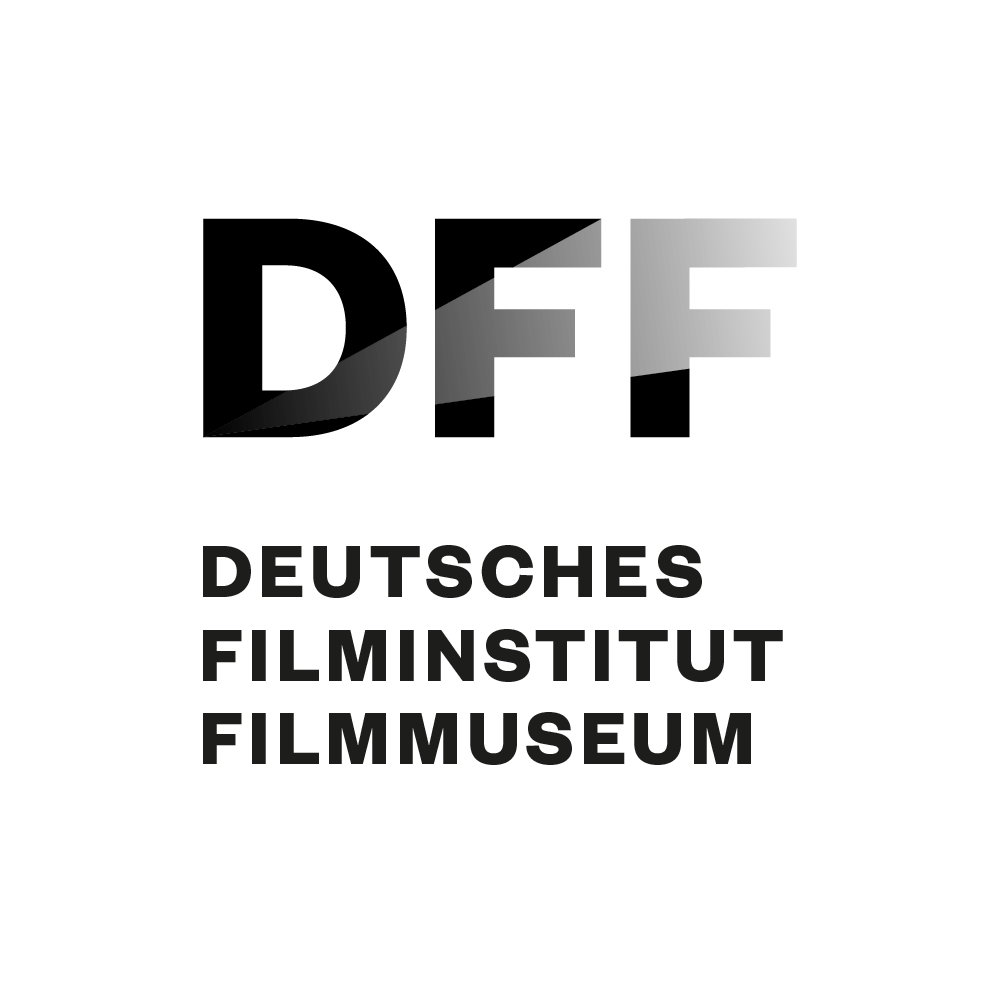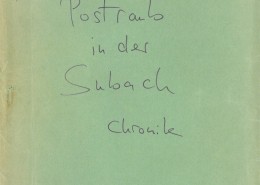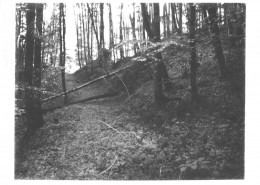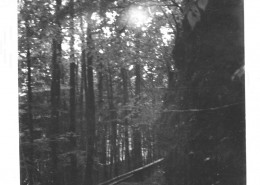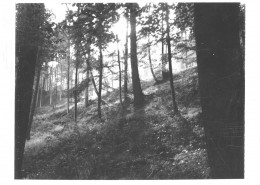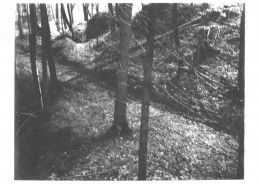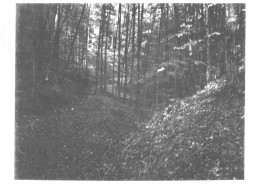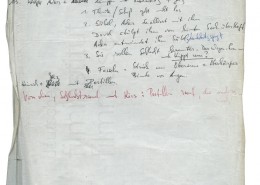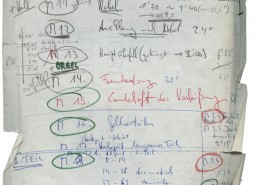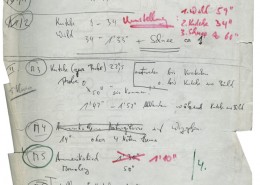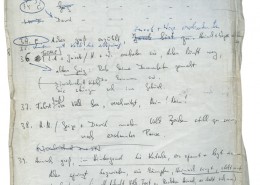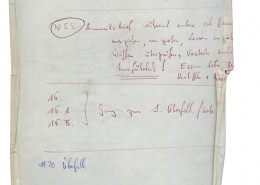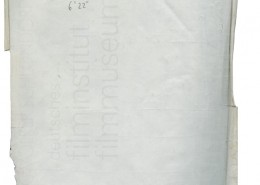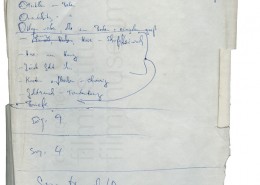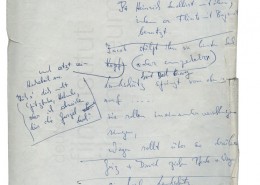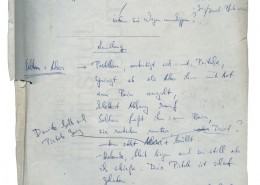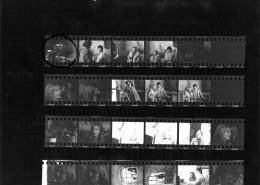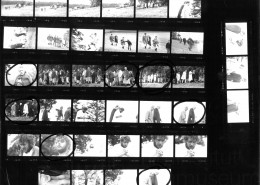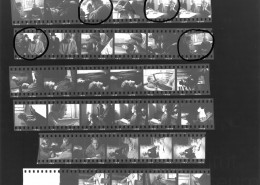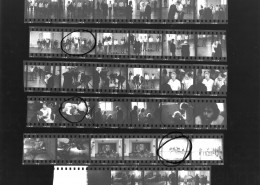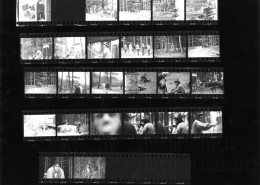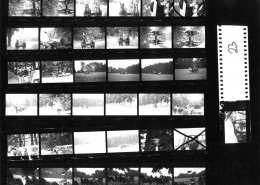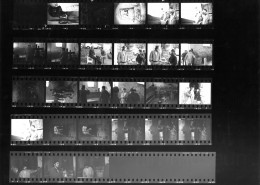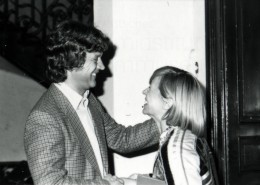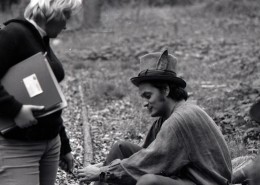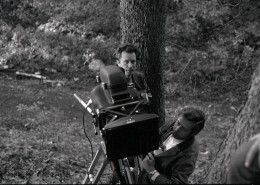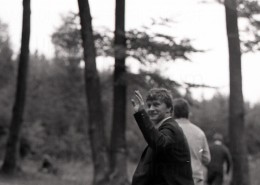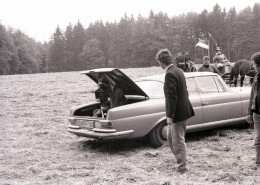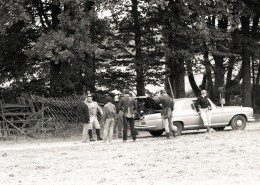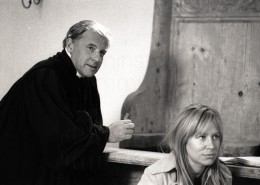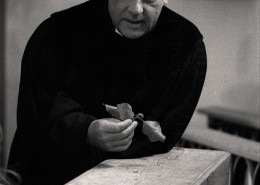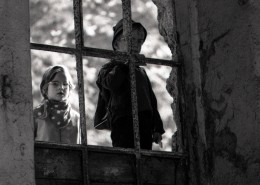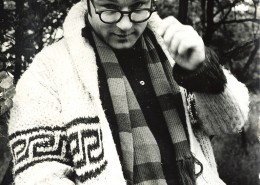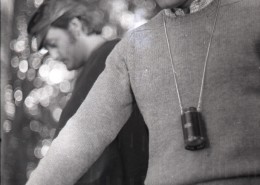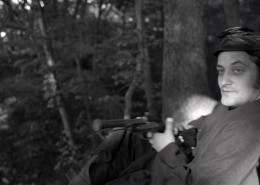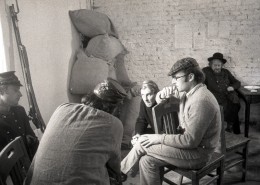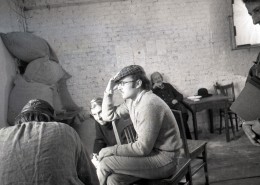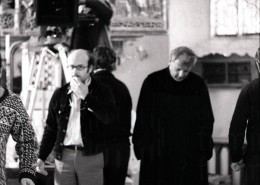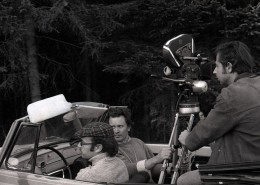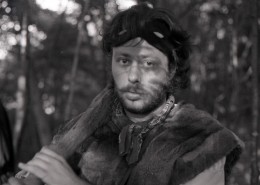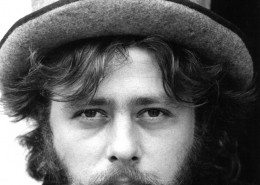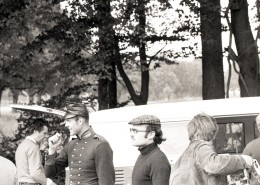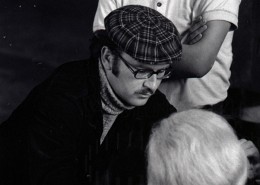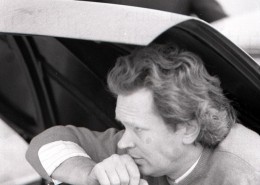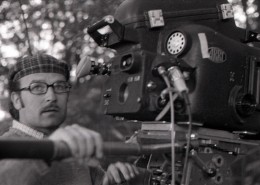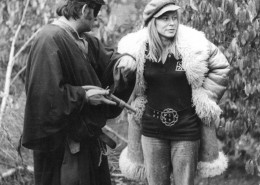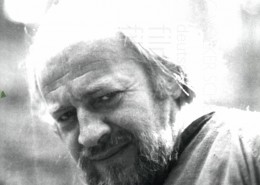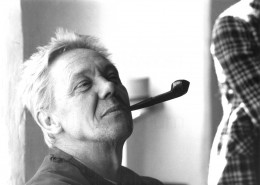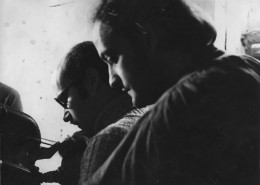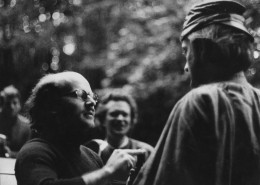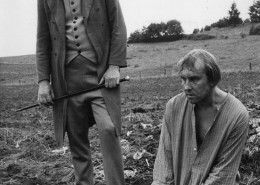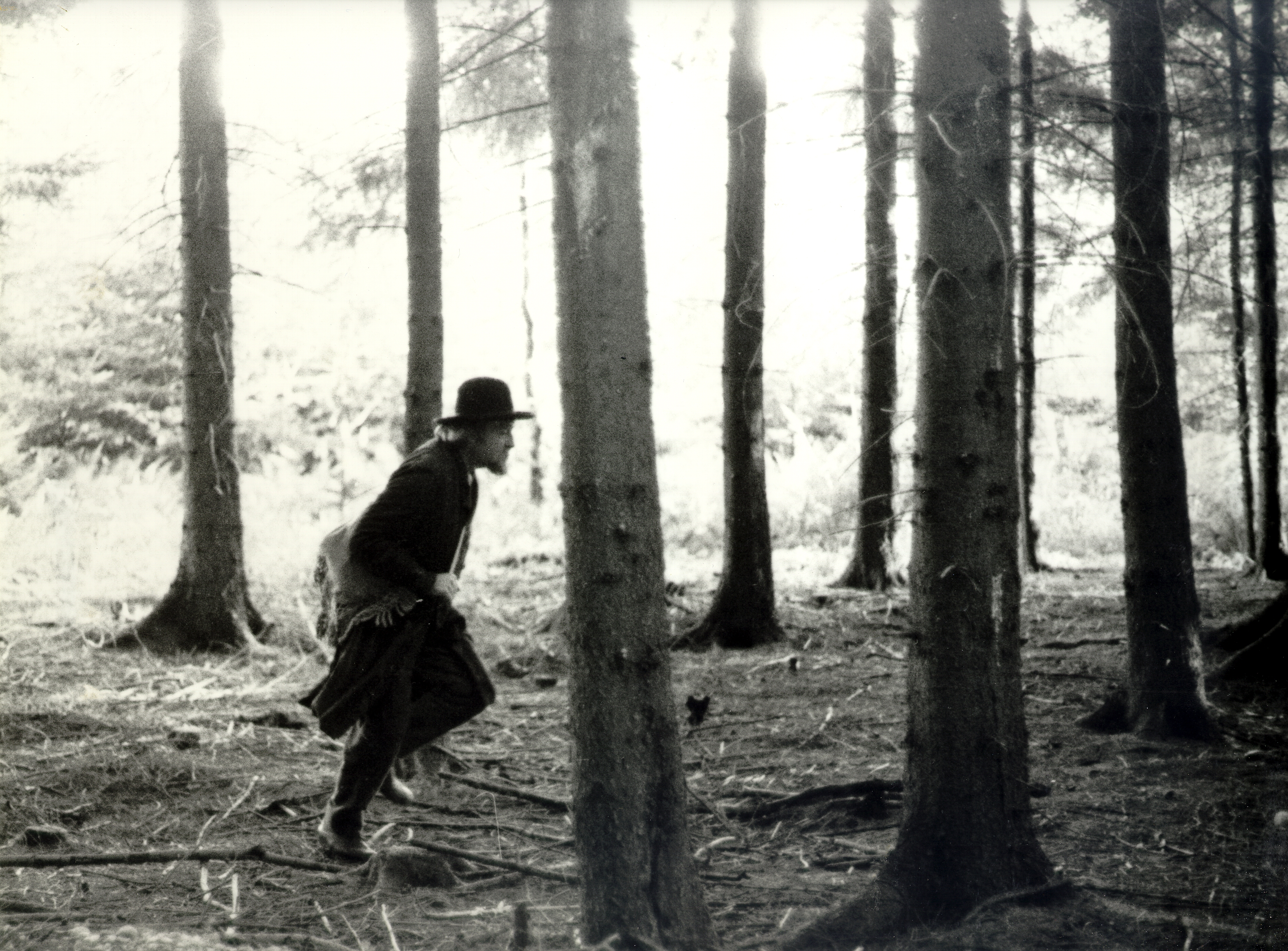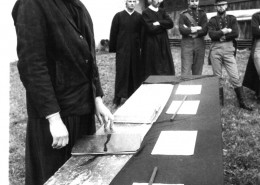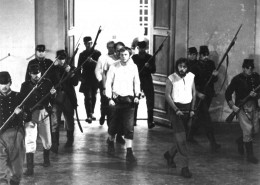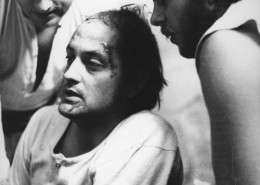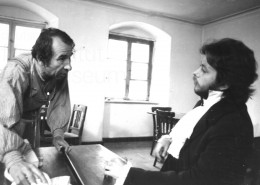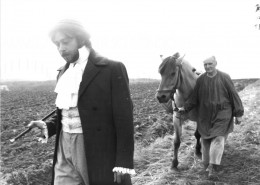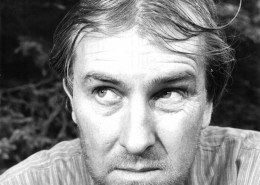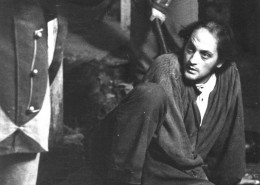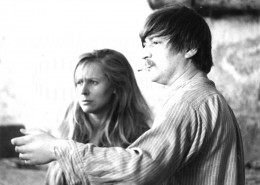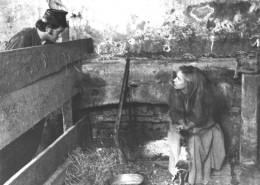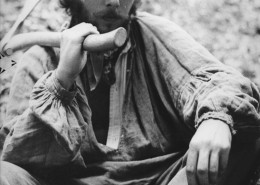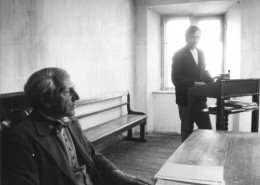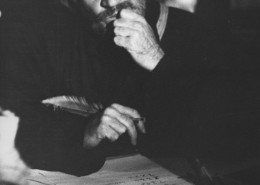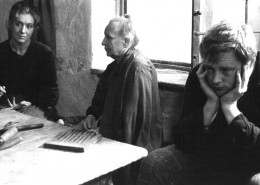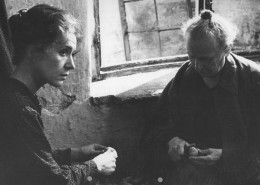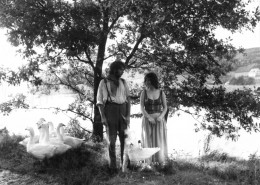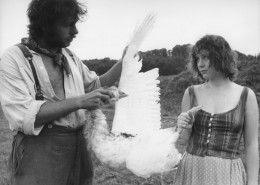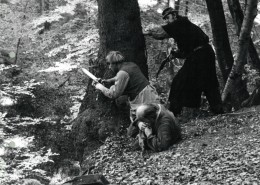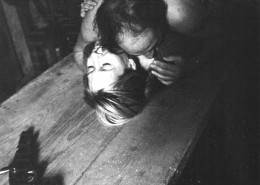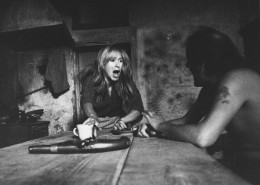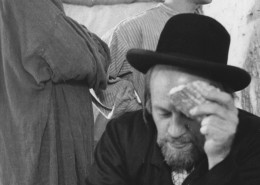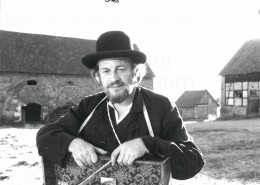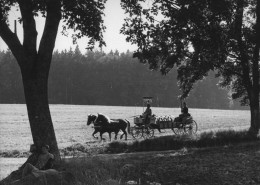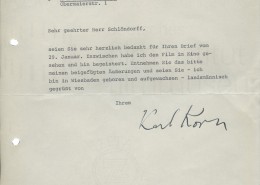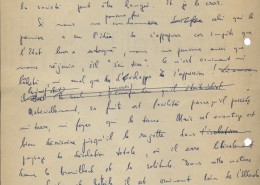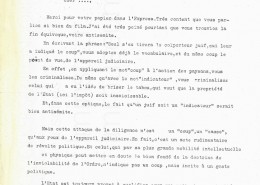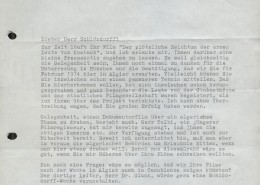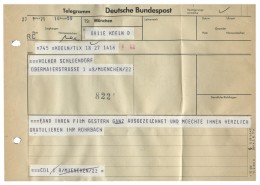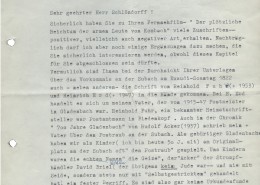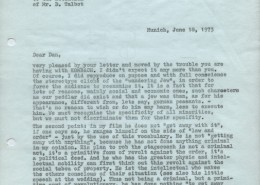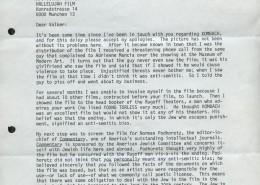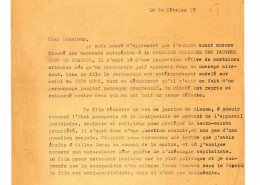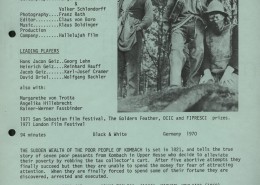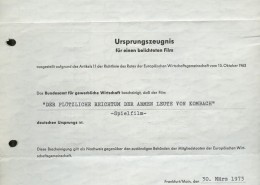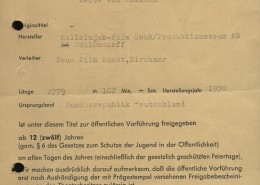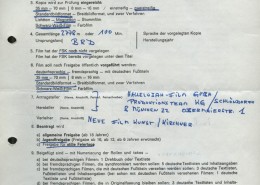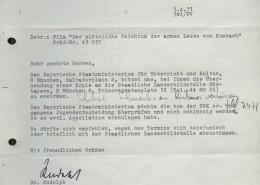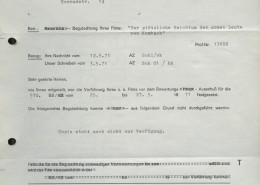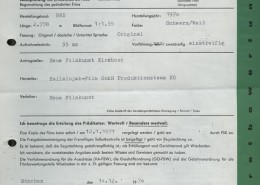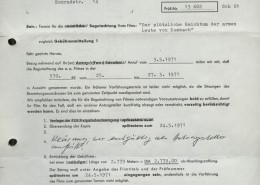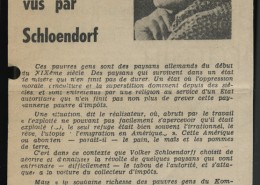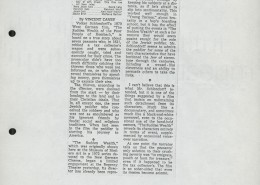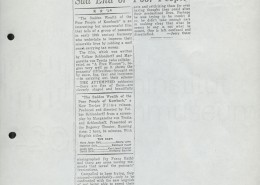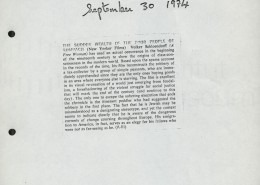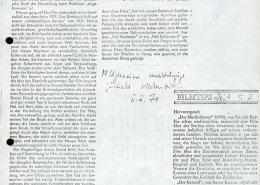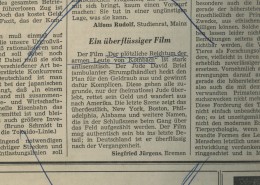Jazz musician and composer Klaus Doldinger (*12.05.1936) cooperated with Schlöndorff on three movies: Baal (1969), DER PLÖTZLICHE REICHTUM DER ARMEN LEUTE VON KOMBACH (The Sudden Wealth of the Poor People of Kombach) (1970/71) and Palmetto (1998).
In contrast to the common “Heimatfilmmelodien” (sentimental film melodies), the soundtrack to KOMBACH is quite unusual. There are, except for a few occasions, no folk ballads, no passed on old-fashioned songs or country melodies that could awake a feeling of authenticity, but rather electronically arranged, light Jazz. Also, no fiddles are in use, which usually associate with the country folk, instead one can hear different percussion instruments, E-Bass, harps, flutes, organs, clarinets and trumpets.
According to Schlöndorff it has been a deliberate decision for that kind of music to avoid the usual kitsch that goes along with the “Heimatfilm” (sentimental film). The role of the music is to “dedust the genre” and to provide a modern day perspective to the happenings. (cf. Schlöndorff in the video interview).
The intention of the New Heimatfilm, to view German history from a new perspective and to find new forms of picturing the homeland, is therefore given on a musical level.
In this film, music is usually only used when movement is seen. Music is hardly heard after the assault in the second half of the film. The only exception is the use of diegetic music (whose source is visible in the film and also audible for the characters) during the wedding ceremony. For more than five minutes (with short interruptions) two violinists and a clarinet player play a cheerful tune, which invites the guests to dance and feels very insistent through the constant repetition of notes. The music therefore fulfils its role in creating the atmosphere.
Main themes
Overall there are two evident main themes on the non-diegetic level (music that is only audible to the audience). The first main theme guides the men in the forest. The composition here is percussion-biased. The underlying bass is of driving nature and therefore in rhythmic unison with the men running through the woods. The melody is played by flutes. Throughout the film improvised flute solos are added.
The second theme is the leitmotif for the “Goldkärrchen” (the money transport). The fanfare, played by trumpets, announces the arrival of the carriage and represents the electoral authority of the country.
The two themes are often heard right after each other or merge together. As soon as the camera switches from the men to the carriage one hears the fanfare. The music therefore plays a role of providing narrative associations.
Ballad
As in BAAL, Doldinger sets a poem, in ballad form, to music. The song Die Zeit ist reif, wir fahren nach Amerika (The time is right, we are going to America) is sung by Doldinger himself right in the beginning of the film. The title expresses the desire of the farmers for a better life. After the song finishes Ludwig Acker figuratively picks up the lyrics and yearningly talks about how he imagines life as a rich man.
Right after the successfully carried out robbery on the “Goldkärrchen” the song is played again, this time by high-pitched flutes. Through the repetition of the song it is stressed that the group now feels closer to their dream of a better life.
